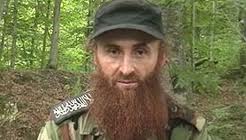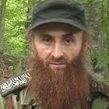
Death of Umarov’s Successor Is a Major Setback to Rebel Movement
Publication: Eurasia Daily Monitor Volume: 8 Issue: 68
By:

Following reports that Russian air and ground forces had killed 17 militants in an operation targeting a rebel base near the village of Upper Alkun in Ingushetia, Moscow waited with trepidation for the official identification of the body of Doku Umarov, the leader of the North Caucasus militants, as if his death would dramatically change the situation in the region. Then, on April 3, the president of Ingushetia, Yunus-Bek Yevkurov, suggested Umarov was alive and could still be in Ingushetia (gazeta.ru, April 4). Virtually all the Russian newspapers, magazines and TV channels soon became filled with reports that the bodies of Umarov’s inner circle, including Supyan Abdullaev, had been found. In the meantime, rebel news sources denied Umarov was dead but confirmed that Abdullaev had been killed (https://kavkazcenter.com/russ/content/2011/04/03/80436.shtml).
The liquidation of Abdullaev was little solace for those who sought Umarov’s death. In reality it is Abdullaev’s death that can and should be regarded as a severe blow to the entire North Caucasus militant movement and to the supporters of the Caucasus Emirate. It was Abdullaev who was behind the creation of the Caucasus Emirate, and was responsible for extending the Emirate’s frontiers to virtually all Muslim peoples of the North Caucasus, well beyond Ichkeria, which was de jure confined to the boundaries of the Chechen Republic. The role of Emir Supyan, also known as Supyan Abdullaev, together with that of Emir Seifullah, also known as Anzor Astemirov, who was killed in March 2010, were of exceptional significance for the implementation of the Islamic component and physical structure of the armed rebel movement (www.svobodanews.ru/content/article/1993831.html). If Emir Seifullah tried to tackle the issue of subordinating Muslim regiments of various ethnicities across the region to the president of Ichkeria (www.jamaatshariat.com/ru/content/view/531/29/), Emir Supyan, for his part, put into practice the very idea of forming an Islamic state in the North Caucasus – a concept that had been cherished by both men ever since the second half of the 1980s when they had participated in the Islamic Revival Party (www.nmayd.com/forum/showthread.php?t=826&page=1).
The role that Supyan Abdullaev had within the system of the Caucasus Emirate was clearly manifested when some of the most influential Chechen commanders renounced their oaths of allegiance to Umarov in August-September 2010 after the latter first announced his resignation as head of the North Caucasus rebels and declared Chechen commander Aslanbek Vadalov as his successor (www.gazeta.ru/politics/2010/08/02_a_3403658.shtml) but reversed that decision three days later and reinstalled himself as Emir of the Caucasus Emirate (https://inforotor.ru). It was not difficult to guess that this was precisely due to the position of Abdullaev, who ignored the joint declaration by such prominent Chechen commanders as Aslanbek Vadalov, Tarhan Gaziev and Hussein Gakaev. Allying himself with Umarov, Emir Supyan played a crucial role in the subsequent developments. After the Chechen commanders left for their bases, it was Supyan, who had always been close to Umarov, who managed to persuade him to reverse his decision. Thus, the role of Supyan Abdullaev became decisive in the fight against the dissident Chechen commanders.
Thus Supyan Abdullaev’s death raises the question of what will be the effect of the loss of one of the most influential and most religious of the ideologues of the Chechen and North Caucasus militant movement on those who adhere to an Islamic vision of the future of the North Caucasus?
First of all, the camp loyal to Umarov has been left without a major ideological figure, meaning that Umarov’s power base across Chechnya has declined dramatically. His death followed the already irreparable damage Umarov suffered from the schism among almost all senior and mid level Chechen field commanders (https://daymohk.org).
The next question is that of the political future of Doku Umarov, who now has practically no support in Chechnya among veteran field commanders. The aforementioned Chechen commanders – Vadalov, Gaziev and Gakaev – apparently can once again raise the issue of his resignation from the post of Emir of the Caucasus Emirate. But even this kind of action is not so dangerous for the Chechen rebel movement. The more important question is who will emerge as the next leader of the North Caucasus militant movement, given this newly formed balance of power in Chechnya? The new Chechen leadership made up of the commanders who broke away from Umarov may not be able to count on support from neighboring jamaats, and most importantly from the powerful Sharia Jamaat in Dagestan. The crux of the matter is that the former leader of the Dagestani jamaat, Seifullah of Gubden (aka Magomed Vagapov), who was killed in August 2010 had publicly accused the “seditious” Chechen commanders of deviation from and violation of the principles of Islamic governance (www.islamdin.com/index.php?option=com_content&view=article&id=883:2010-08-12-21-25-33&catid=2:kavkaz&Itemid=3).
In doing so, there can be no chance today of supporting those who were castigated yesterday for trespassing Sharia law. Consequently, a non-ethnic Chechen could become the head of the armed rebel movement. If this were to occur, it would serve as a blow to the entire movement given that the Chechen segment that has traditionally remained the base and fundamental component of the group. Furthermore Chechen forces were severely weakened in recent times, unlike those of the Dagestan and Kabardino-Balkaria jamaats, which today stand as the most active forces in the North Caucasus armed movement.
If the new head of the Caucasus Emirate is chosen from among the leaders of the Dagestan jamaat, serious coordination problems will emerge between the jamaats of Kabardino-Balkaria and Ingushetia. While the Chechen rebels will still be needed to serve as important liaisons, they will be in opposition to the newly elected Emir. The most efficient and least damaging way out in this situation would be the election of the head of the Ingush jamaat as the unified North Caucasus leader.
But with the capture of Emir Magas, also known as Yevloev or Taziev, the head of the Ingush rebels (www.gazeta.ru/column/latynina/3383893.shtml), and the alleged arrest of his successor, Emir Daud (https://www.ingnews.ru/index.php?option=com_content&view=article&id=6988:-l-r&catid=7:unsorted), the Ingush jamaat is currently in a stupor. It was probably infiltrated by Federal Security Service (FSB) spies after losing two of its leaders in six months. This is the primary reason why separate units of the Ingush jamaat do not want once again to merge into a centralized structure. Meanwhile, local units may continue to function autonomously until they succeed in revealing the mole who gave away their leaders to the Russian security services. Given the current situation, the selection of an Ingush emir who would be approved by both the Chechen and Dagaestani factions is next to impossible. Likewise, choosing someone from Kabardino-Balkaria’s Yarmuk Jamaat, headed by Emir Abdullah-Arsen Dzhuppaev, as leader of the North Caucasus resistance movement also seems very unlikely given the coordination problems with other jamaats in the northeastern Caucasus.
Supyan Abdullaev’s death is thus a greater loss than would have been the killing of Doku Umarov, despite the latter being the preferred target by Russian security forces. If Umarov had been killed, he would have been succeeded by his designated heir. Ironically, the death of Abdullaev, Umarov’s designated successor, has not only made life more difficult for Umarov but has also quickened the need for a resolution to the leadership problems facing the North Caucasus armed movement in light of the breakaway Chechen commanders.




